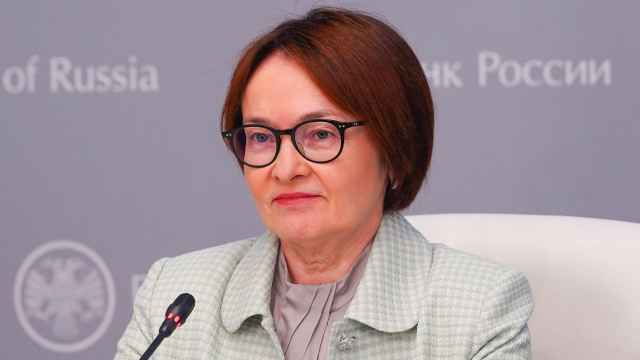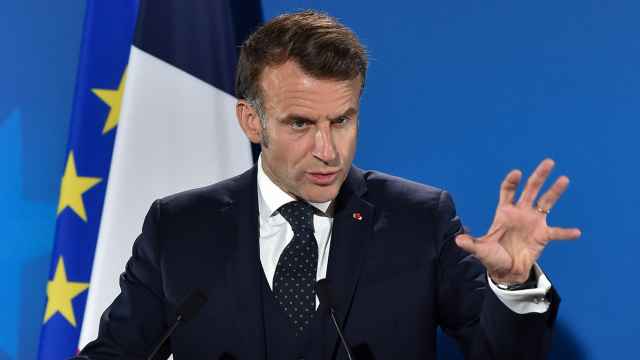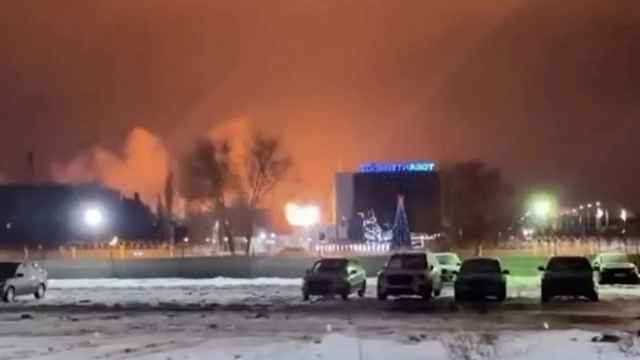LONDON — Most Western banks are shunning Russia's syndicated loan market as a result of the Ukraine crisis and could stay away for a year or more, despite the potential loss of more than $45 billion in business.
Fears over the impact of current and threatened future sanctions, including on the suppliers and balance sheets of the would-be borrowers, spell the end of hopes that deals in process before the crisis hit may still complete, banking sources said.
These include a $1 billion deal for petrochemicals company Sibur, and $500 million each in refinancing for potash producer Uralkali and uranium enrichment firm Tenex.
"Nothing has moved, deal activity has frozen. I would guess that the best-case scenario is a 12-month hiatus," a London-based loan banker said.
Russian companies have agreed just under $5 billion of loans so far this year after raising nearly $50 billion in 2013; the country consistently ranks as the sixth or seventh-largest market in the EMEA — or Europe, Middle East and Africa — region, Thomson Reuters data shows.
Most of the credit approvals that had been agreed by lenders before the Ukraine crisis have now expired on deals that have not completed. Bankers said that it will take some time before credit committees become comfortable with Russian risk again.
"I think it is unlikely that any Russian deals will get done in the short term. The message from above is manage down Russian exposure when you can, not take on more," a second banker said.
Some borrowers, including Sibur, have effectively stopped their deals by refusing to add clauses in loan documentation, insisted on by Western lenders, that stipulate the repayment of loans if more sanctions are imposed.
The U.S. and Europe have imposed sanctions on some individuals and companies over Moscow's annexation of Crimea in March and threatened broader sectoral sanctions if Russia disrupts Ukrainian presidential elections planned for Sunday.
Moscow has turned to Asia to fill the gap, with limited signs of success, and also sought bilateral loans, including from Western banks with Russian franchises which may be more prepared to bear short term risks to preserve a long term relationship.
Big Hole
Russia's dollar-based syndicated loan market was expected to be a major source of revenue for banks in 2014. Russian loans were profitable and paid interest margins of 150 basis points over Libor before the crisis.
Banks were already struggling to hit revenue targets as the provision of cut-price revolving credit loans for blue chip Western companies becomes increasingly commoditized.
"The market [for Russia] is closed. I would speculate that a return to Russian lending will be a 2015 event. Even if the situation stabilizes, which will not happen in the short term, it will still take banks months to get comfortable again with Russian risk," a third banker said.
The hiatus raises questions about how banks will fill the lending void.
"How are we going to cover this hole? We do not know, we are still considering that," said the third banker. Other emerging markets could stand to benefit, but there has been no evidence of an increased deal flow there as yet.
Asia, Franchises?
Russian borrowers' hopes of raising funding from banks in Asia also look likely to be dashed by concerns about sanctions.
Gas giant Gazprom plans to update investors on the company's financial performance and funding plan in Taiwan this week, only two weeks after it met other Asian investors to explore ways of raising new loans and bonds.
The company is also trying to extend an existing $500 million loan that is due to mature in July.
Taiwanese banks, usually Asia's most active investors, have already expressed reservations about joining Russian loans. "Our lending limits to Russian companies have been frozen," a senior loan banker from a major Taiwanese government-owned bank said.
"There is little chance that we can join a deal from Gazprom as the situation in Russia is too complicated," another banker at a Taiwanese commercial bank said.
One option still open to Russian borrowers looking to raise capital is bilateral loans with a small group of Western banks that have bank franchises in Russia.
Metals company Norilsk Nickel, which was trying to raise a $1 billion syndicated loan when the crisis hit, signed a five-year unsecured $200 million bilateral loan with ING on May 14.
The company had already signed two five-year bilateral loans totaling $750 million with UniCredit and Raiffeisenbank in April. Both banks have Russian franchises.
ING and Deutsche Bank are also still pushing for a $1 billion syndicated deal for steel company Evraz, according to bankers.
A Message from The Moscow Times:
Dear readers,
We are facing unprecedented challenges. Russia's Prosecutor General's Office has designated The Moscow Times as an "undesirable" organization, criminalizing our work and putting our staff at risk of prosecution. This follows our earlier unjust labeling as a "foreign agent."
These actions are direct attempts to silence independent journalism in Russia. The authorities claim our work "discredits the decisions of the Russian leadership." We see things differently: we strive to provide accurate, unbiased reporting on Russia.
We, the journalists of The Moscow Times, refuse to be silenced. But to continue our work, we need your help.
Your support, no matter how small, makes a world of difference. If you can, please support us monthly starting from just $2. It's quick to set up, and every contribution makes a significant impact.
By supporting The Moscow Times, you're defending open, independent journalism in the face of repression. Thank you for standing with us.
Remind me later.






